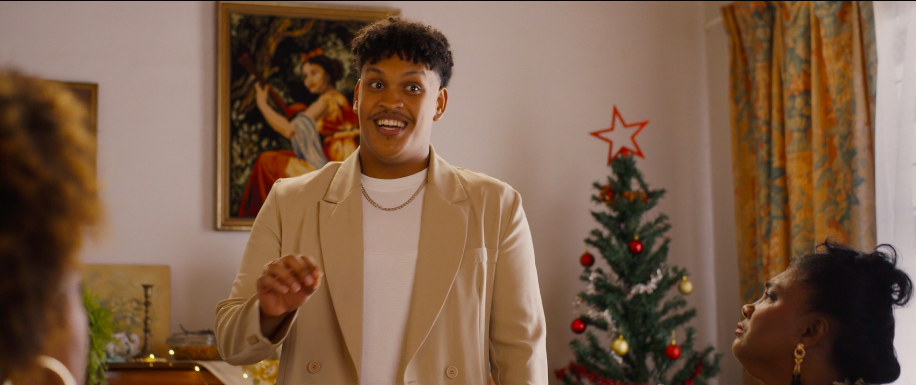
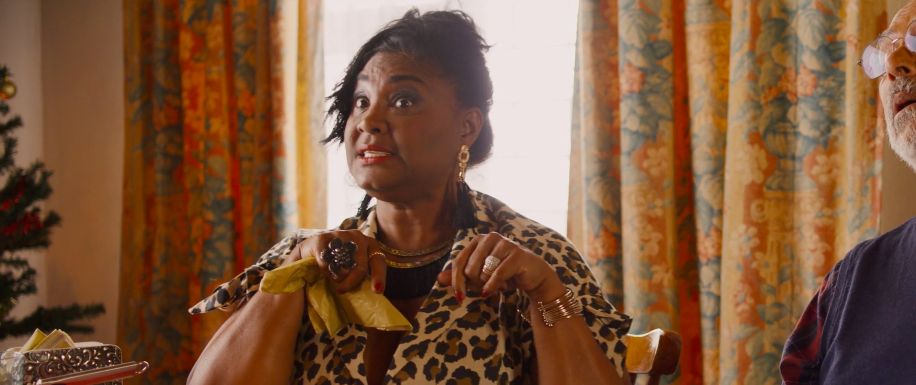
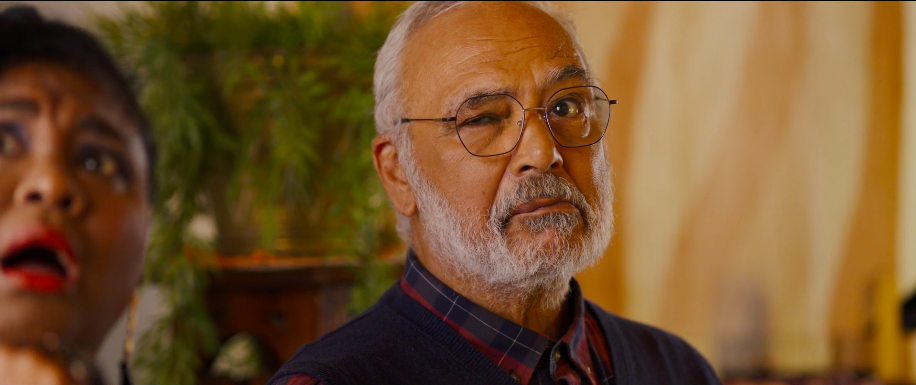
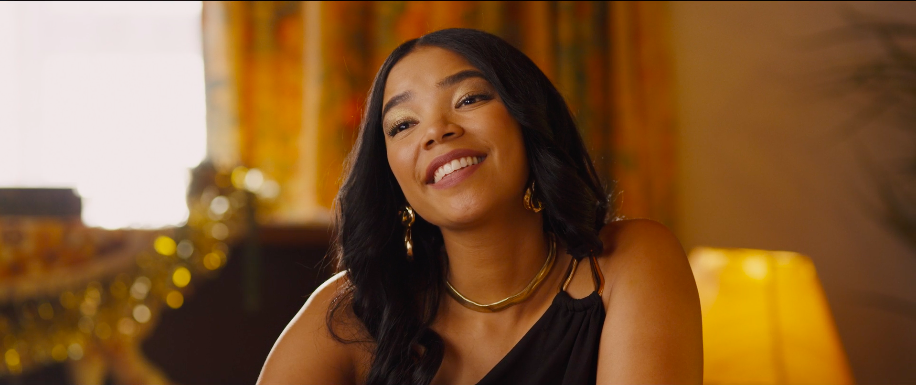
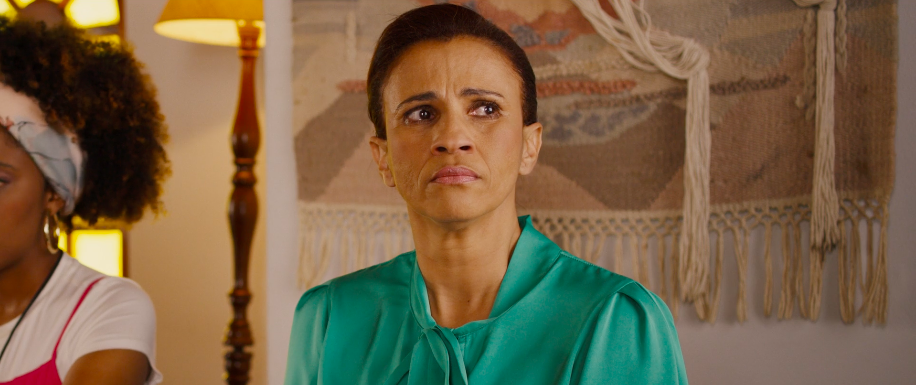
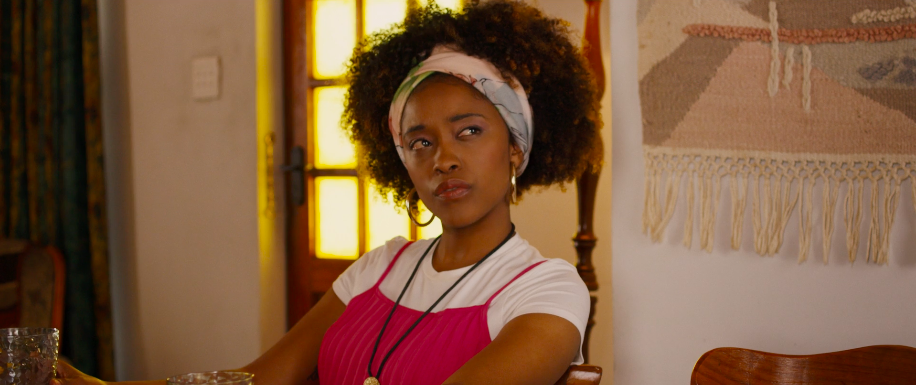
Short film by a rising filmmaker: Kinnetafel
In Kinnetafel, writer-director Stevie Cupido invites viewers to pull up a chair at a family Christmas table where the past lingers between courses, and unspoken truths are served alongside dessert. Lucian Geland (Braeden Buys) has finally made it in the publishing world, and his debut nonfiction book is a hit. The catch? It is a scathing tell-all about his family, and his sister, Marion (Lauren Joseph), is the only one who knows this …
Set against the backdrop of a family reunion, the film explores the changing roles within a family as the children move into adulthood, capturing the discomfort of being both seen and misunderstood by the people who supposedly know them best.
Stevie shared more about how they brought Kinnetafel’s story to life.
What inspired Kinnetafel?
The idea goes back to 2020 during the Covid-19 lockdown. My parents and I were in Bonnievale, and suddenly my three adult sisters, my aunt and my grandmother also came to stay. We were all in one house with one bathroom, and it reminded me of my childhood holidays when all the cousins, parents and grandparents gathered. Inevitably, and regardless of your age, you revert to old roles. One day, my aunt made pancakes and casually mentioned they were “just for the adults”. I remember thinking, “But aren’t we all adults now?” That moment stuck with me. It made me want to explore how ingrained family dynamics never really leave us.
The title suggests light-heartedness, but the film is emotionally hefty. Was that a deliberate decision on your part?
Definitely. I wanted audiences to expect something playful, and then be surprised. It’s a family story, but not really family-friendly viewing.
The title, Kinnetafel, evokes the idea of innocence, but what unfolds is raw and mature. The close, intimate framing was intentional. I wanted viewers to feel like they’d walked into a private conversation they weren’t meant to hear, but now they can’t look away. The tension is embedded in the quiet pauses and the dialogue.
How important was the casting process for this story?
It was very important. In a short film, you need actors who immediately connect with the material. Braeden Buys, who plays Lucian, stood out from the start. He just got it. Lauren Joseph brought a perfect mix of fiery older-sister energy and compassion. Their dynamic helped to bring out the emotional weight, but also showed how, sometimes, older siblings don’t have the options younger siblings have.
Melanie du Bois delivered such a powerful performance as their mother. During her kitchen monologue, we were all in tears. She truly embodied a woman trying to hold things together, even as everything unravels throughout their Christmas lunch. The entire cast brought care, humour and deep understanding to the set. Even between takes, the energy was special, and we would all be laughing.
The characters are all memorable. What inspired their creation, and what did you want them to convey to the audience?
I wanted them to have a touch of camp and enough self-awareness to reflect the absurdity of family chaos, without losing their emotional truth. Many of the characters were inspired by real-life stories, friends and even my own family. Lucian, the writer, is the most personal character.
Writers often draw from personal experiences for inspiration, which, in turn, can feel like betrayal. I wanted that friction. Each character had to contribute to the dysfunction, but also reflect something familiar, like the glamorous aunty who once ruled the beauty counter at Edgars, or the quiet uncle who barely speaks but is just lekker to have around.
What do you think makes this film so relatable?
Everyone has had one of those family meals that didn’t go as planned. The table becomes a symbol of tension. The story is split into starters, mains and desserts in order to build that tension structurally. It mirrors how pressure builds in real life, especially in families.
I think people will recognise themselves in the characters: how we act, how we’re seen, and how seemingly unimportant things can spiral out of our control. The film shows a family breaking things down to then rebuild them again, and that’s something many people can relate to. Ultimately, there is still a lot of love between them, even if things become ugly and chaotic at times.
The book within the film, Lucien’s tell-all, is a powerful element. Why did you include that layer?
Books are important to me. I’ve always been a reader, and I wanted to reflect that artistically. Lucian’s book represents how long he’s been carrying things and stewing over it, because a book doesn’t get written overnight. It takes time. But he’s so deeply caught up in his version of the family story that he can’t see how it might hurt others. It reflects how isolating it can be when you turn real life into art without stepping back to see the full picture.
